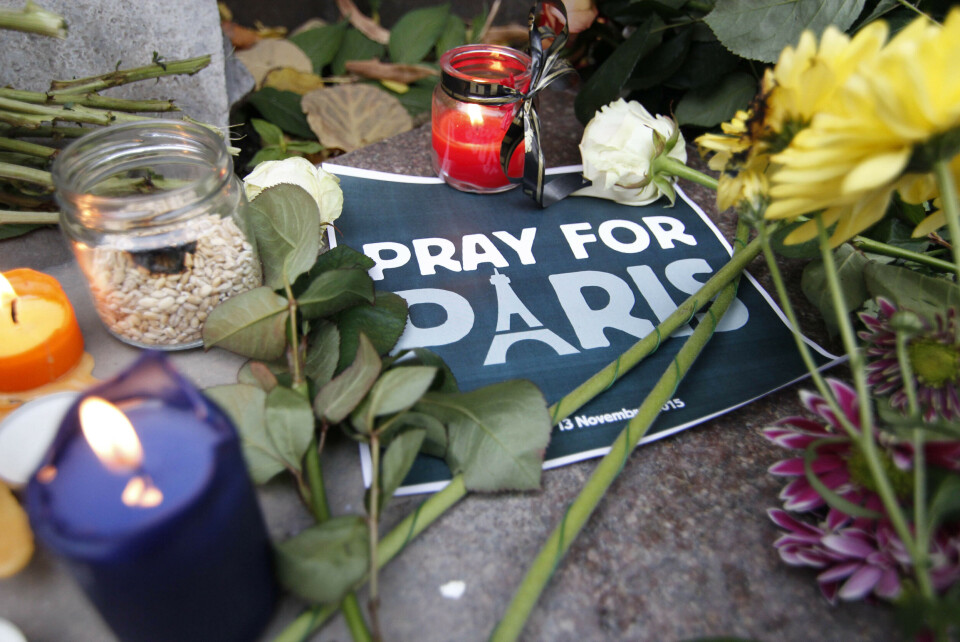-
Why your car insurance in France is expected to increase this year
Premiums are forecast to rise by four to six percent in 2026
-
Two Britons killed in avalanche in French Alps were with an instructor
French skier also died in the disaster at Val d’Isère on Friday February 13
-
British Airways launches bargain £2 flights to France (but there’s a catch)
The flights are only available to members of the airline’s Avios scheme who are redeeming loyalty points
November 13 Paris attacks trial: Life sentence but not for 130 deaths
French law means that Salah Abdeslam could not be given a full-life term for his terrorism-related offences

The surviving member of the terrorist group which carried out the Paris attacks of November 13, 2015 has been sentenced to a rare full-life term following the biggest French trial since World War Two.
Salah Abdeslam, 32, was found guilty of terrorism and murder charges. His full-life sentence will mean that he will only have a very small chance of parole after 30 years in prison.
Full-life term not for terrorism offences
His term was, however, not served because of the part he played in killing 130 people and injuring 416 others through attacks on various bars, restaurants, outside the Stade de France and the Bataclan music venue.
This is because, under French law, only the attempted murder of police officers committed by Abdeslam’s accomplices at the Bataclan justified a full-life sentence (réclusion criminelle à perpétuité incompressible).
At the time of the Paris attacks, terrorist crimes against civilians were only punishable by a maximum prison term of 22 years. When full-life terms were introduced in 1994, they only concerned murders involving rape, torture or an act of barbarism on a minor.
In 2011, the possibility of handing down this sentence was extended to murders or attempted murders of members of the authorities such as police officers, and only in 2016 were terrorist crimes added to the list.
This change in the law cannot be applied retroactively, and so Abdeslam’s full-life sentence could only relate to the attempted murder of police officers at the Bataclan.
In reality, Abdeslam was never at the Bataclan, but he is considered to be the “co-perpetrator” of all the crimes committed that night, and the court ruled that “the different sites targeted on November 13, 2015 must be examined as a single crime scene”.
Abdeslam’s lawyers had opposed this view, calling for the court to consider their client’s presence at the Stade de France alone.
“Salah Abdeslam was not at the scene, he was not even aware of the eventual confrontation with the police,” they had argued, adding that although full-life terms were indeed appropriate for those who were at the Bataclan, “we must conclude that as we do not have them here, [you need] to punish someone”.
Another 19 men, six of whom are believed to be dead, were also convicted, mainly of helping to plan the attack. Of the 14 who appeared at the trial, Abdeslam was the only one to have been sentenced to a full-life term.
A historic trial
The terror attack trial began last September at Paris’ Palais de Justice, and over 148 days the court unpicked the events of the night in question through testimonies from around 1,800 witnesses and victims.
At the beginning of the process, Abdeslam defiantly described himself as a “soldier” of the so-called Islamic State, but in his closing remarks he said that he was “not a murderer, or a killer,” and that convicting him would constitute “an injustice”.
Over the course of the trial, he also claimed that he had chosen not to detonate his suicide vest and had instead taken it to a Parisian suburb for disposal.
However, evidence suggested that the vest had in fact been defective, discrediting Abdeslam’s assertions.
The possibility of his being released after 30 years is tiny, but in accordance with EU law, France must allow a convicted prisoner to apply for parole after this period has elapsed.
A panel of five judges will be charged with returning a decision based on the prisoner’s level of rehabilitation and the likelihood of his reoffending.
While some defendants were given lesser sentences, another defendant, Mohamed Abrini, was given the life sentence associated with terrorist offences before 2016 – 22 years – for his involvement in the Paris attacks.
During the manhunt for Abdeslam, footage was found showing him and Abrini at a petrol station on November 11. It is believed that Abrini drove Abdeslam to Paris after this.
It is also “more than likely” that Abrini is the “man in the hat” who was filmed at Brussels airport just before the bombings which took place there on March 22, 2016. After the explosions, video footage also shows Abrini walking away from the airport.
He was arrested on April 8, 2016 and admitted that he was the “man in the hat”.
Another man, Mohamed Bakkali, was sentenced to 30 years in jail for his “key role in the logistics of the attacks”, having been accused of sourcing accommodation in Brussels to hide the attackers.
‘We still have our injuries’
A survivor of the attacks, Édith Seurat, told the BBC that the outcome of the trial had failed to heal her pain, saying: “We still have our injuries and our traumas and our nightmares and our wounds.
“We still have to keep on living with that.”
However, the father of one of those who was killed, Stéphane Sarrade, said that he hoped that sitting through the “terrible” experience of the trial had helped him to process what happened.
Related articles
Floods, terrorist attacks: New mobile alert system in France
Paris trial over jihadist murder of French priest in 2016 begins
France honours victims of November 13 attacks on sixth anniversary
























